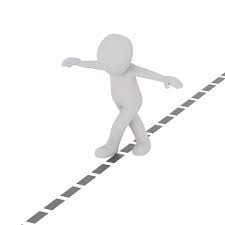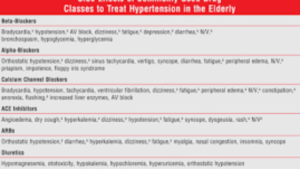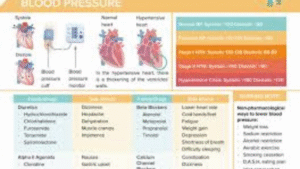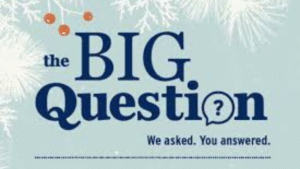Let’s Talk About Blood Pressure Pills, Honestly

Side effects of blood pressure medications is quiet—too quiet. It doesn’t scream for attention the way chest pain does. Instead, it lingers in the background, building pressure against your arteries until suddenly something breaks: a stroke, a heart attack, or kidney damage. That’s why doctors often prescribe hypertension medication before you even feel sick. It’s preventive armor, keeping the invisible damage from getting out of hand.
But here’s the thing: while blood pressure drugs save lives, because of the side effects of blood pressure medications, they don’t always feel like lifesavers. Fatigue. Ankle swelling. A cough that just won’t quit. Sometimes you wonder if the side effects are worse than the condition itself. And then you hear a friend say, “Oh, I take the same high blood pressure medication and feel fine.” You know what? That can be frustrating.
Add to that the fact that many people supplement with herbs or natural remedies—garlic, turmeric, ginseng, maybe a calming tea. Sounds harmless, right? Not always. Some of those combos cause herb medication interactions that sneak up on you. That’s why tools like a herb drug interaction checker are worth using. Think of them as your backstage pass to safer choices.
Why Doctors Prescribe Blood Pressure Medication in the First Place

Let me explain. Doctors don’t prescribe hbp medication because they like writing scripts. They do it because untreated high blood pressure is like running your car engine in the red zone all the time. You don’t see the damage immediately, but the wear and tear add up.
Drugs for high blood pressure come in several flavors, each with its own specialty:
-
Diuretics (water pills): They’re like draining extra fluid from a clogged sink. Out goes the salt, out goes the water, and pressure eases.
-
ACE inhibitors: They stop your blood vessels from squeezing so tightly, kind of like loosening the knot on a balloon.
-
Beta-blockers: These lower your heart’s speed, almost like switching from sprinting to jogging.
-
Calcium channel blockers: They help arteries relax and widen, like opening up extra lanes on a crowded highway.
-
ARBs: They work a lot like ACE inhibitors but are less likely to cause that nagging cough.
Sometimes one pill is enough. Other times, doctors build a combo of blood pressure medications—a cocktail designed to hit hypertension from different angles.
The Side Effects That Sneak In

Here’s the truth: every pill has baggage. You get the benefits, but sometimes your body grumbles.
Diuretics: Always Running
Diuretics are solid performers, often the first choice. But they come with frequent bathroom trips. They also flush out potassium, which can leave you with cramps or even irregular heartbeats. Ever stood up too fast and felt dizzy? Yeah, diuretics can do that.
ACE Inhibitors: The Coughing Culprit
ACE inhibitors are famous for that dry, irritating cough. Some people shrug it off, others can’t tolerate it. Rarely, they trigger swelling in the lips or throat, which is an emergency. Plus, they can raise potassium levels—sounds good until your heart rhythm gets thrown off.
Beta-Blockers: The Energy Downers
These meds slow the heart rate. That’s the point. But it often leaves people feeling sluggish. Cold hands and feet are common. Some even notice mood dips, like life’s colors are a little duller.
Calcium Channel Blockers: The Swellers
They open up your arteries, which is great. But ankle swelling, constipation, and headaches? Not so great. Imagine wearing shoes that suddenly feel too tight every evening.
Combo Therapy: When One Isn’t Enough
When one high blood medicine doesn’t do the trick, doctors add another. The good? Better control. The bad? Side effects may stack up—dizziness from one, fatigue from another. It’s like playing whack-a-mole with symptoms.
Why Side Effects Feel So Different for Everyone

Here’s something that puzzles many people: why do you get tired on a certain bp medication, while your cousin on the same drug feels perfectly fine? Honestly, it’s complicated.
-
Dosage matters. Higher doses mean higher odds of problems.
-
Age shifts the balance. Older adults process meds differently.
-
Health conditions rewrite the rules. Kidney disease, diabetes, heart problems—all change how drugs work.
-
Lifestyle tilts the scales. Salty diets, smoking, alcohol—they all push against the meds.
-
Herbs sneak into the mix. That licorice root tea? It can lower potassium dangerously with diuretics. Ginseng with beta-blockers? That’s like hitting the gas and the brake pedal at once.
This is why your doctor always asks, “Are you taking any supplements?” And this is where a herb drug interaction checker isn’t just nice to have—it’s necessary.
So What Can You Actually Do About Side Effects?

You know what? You don’t just grit your teeth and live with them. There are strategies—real, practical steps that make a difference.
1. Speak Up, Even If It Feels Small
A lot of people don’t tell their doctor when meds make them miserable. They think it’s normal. It’s not. If your hypertension medication makes you cough, feel dizzy, or drag through the day, tell your doctor. Sometimes a small switch changes everything.
2. Back It Up With Better Habits
Medicine works best with backup. Lowering salt makes diuretics more effective. A short daily walk fights fatigue from beta-blockers. Stress management—whether through yoga, prayer, or journaling—can calm the tension that makes blood pressure harder to control.
And here’s a seasonal thought: summer heat dehydrates you faster, which makes diuretics harsher. Winter? Heavy holiday meals loaded with salt can push your numbers up despite meds. Timing matters.
3. Monitor at Home Like a Detective
A home monitor isn’t just a gadget. It’s a logbook. Track your readings, jot down how you feel, and share it with your doctor. Maybe your dizziness shows up in the mornings. Maybe swelling happens after dinner. Those patterns help fine-tune treatment.
4. Ask About Alternatives
There’s no single “right” hbp medication. If one isn’t working, another might. Doctors have plenty of tools—sometimes it’s about finding the one that plays nicest with your body.
The Herb and Supplement Question

Here’s the thing about herbs: people trust them because they feel natural. And natural feels safe. But “natural” doesn’t always mean safe with blood pressure drugs.
-
Garlic: Good for cholesterol, risky with blood thinners.
-
Licorice root: With diuretics, it can crash potassium to dangerous lows.
-
Ginseng: May cancel out the effects of your high blood pressure medication.
You see the pattern? Herbs can help, but they can also backfire. That’s why herb medication interactions are such a big deal.
Why a Herb Drug Interaction Checker Is Your Friend
Imagine this: you’re thinking about adding turmeric capsules to your routine. You pull up a herb drug interaction checker online, enter your bp medication, and add turmeric. Seconds later, you see a warning that it might interact with blood thinners. That’s powerful knowledge—before the problem starts.
Websites like Drugs.com and NIH’s Office of Dietary Supplements are go-to resources. Simple, free, and effective. Honestly, it’s like having a pharmacist in your pocket.
When Side Effects Cross the Line

Most side effects are annoying, not dangerous. But some? They’re red flags you can’t ignore. Call your doctor—or the ER—if you notice:
-
Chest pain or heavy pressure
-
Severe dizziness or fainting spells
-
Swelling in your lips, tongue, or throat
-
A racing, pounding, or irregular heartbeat
These aren’t “wait and see” moments. They’re warnings. Act fast.
Wrapping It All Up
Managing hypertension medication is a balancing act. On one side, you’ve got lifesaving protection against strokes and heart attacks. On the other, you’ve got side effects that can make daily life harder. But here’s the good news: you don’t have to choose one or the other.
By speaking openly with your doctor, adjusting lifestyle habits, and using tools like a herb drug interaction checker, you can find the balance that works for you. Remember, your health isn’t just about the numbers on a blood pressure monitor—it’s about living fully, without letting pills or side effects define your days.
Honestly, that’s the real goal: steady numbers, fewer frustrations, and a sense of control over your own health. And you know what? With the right mix of awareness and action, it’s completely possible.
External link:
Internal link:
-
Top Herbs That May Interact With Prescription Drugs: https://evaluatemymeds.com/
-
How to Read and Simplify Your Prescription Label: https://evaluatemymeds.com/index.php/understand-my-medical-document/
-
The Most Prescribed Drugs for High Blood Pressure Explained: https:https://evaluatemymeds.com/index.php/2025/09/18/high-blood-pressure-explained/








